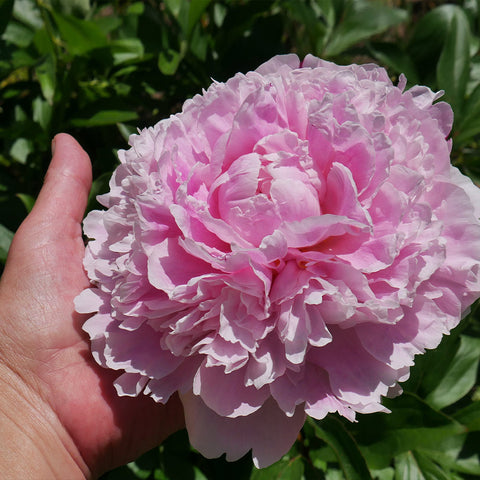Peonies
Showing 1 - 18 of 18 items
Showing 18 of 18 items
Growth Rate: Moderate Growing
Starting at $65.95
Growth Rate: Moderate Growing
Starting at $49.95
Growth Rate: Moderate Growing
Starting at $125.95
Growth Rate: Moderate Growing
Starting at $72.95
Growth Rate: Moderate Growing
Starting at $119.95
Growth Rate: Moderate Growing
Starting at $69.95
Growth Rate: Fast Growing
Starting at $116.95
Growth Rate: Moderate Growing
Starting at $119.95
Growth Rate: Moderate Growing
Starting at $119.95
Growth Rate: Moderate Growing
Starting at $119.95
Growth Rate: Moderate Growing
Starting at $119.95
Growth Rate: Moderate Growing
Starting at $119.95
Growth Rate: Moderate Growing
Starting at $119.95
Growth Rate: Moderate Growing
Starting at $116.95
Growth Rate: Moderate Growing
Starting at $106.95
Growth Rate: Moderate Growing
Starting at $119.95
Peonies for Sale
Peonies are long-lived flowers with large, fragrant fluffy blooms that range in color, form, and size. There is no consensus on the exact number of peony species, but by some estimates, it’s more than 30. Most peonies are herbaceous perennials, although there are several woody shrubs. Learn more about our favorite varieties to grow below.

Different Types of Peony
The three most common types of peonies are tree peonies, herbaceous peonies, and Itoh peonies.
Tree Peonies: This type consists of woody, deciduous shrubs like Debutante Camellia that produce large, fragrant, frilly flowers in mid-to-late spring. Their blooms, which can be up to 10 inches across, last between 7 to 10 days.
Herbaceous Peonies: A garden classic, Herbaceous Peonies are one of the easiest and hardiest perennials to grow. Moreover, these gorgeous plants can live to be up to 100 years old. Plant a herbaceous peony, and you’ll have stunning pink flowers for life.
Itoh Peonies: Also known as Intersectional Peonies, this variety was created by crossing tree and herbaceous peonies. They produce flower leaves similar to tree peonies but have growth habits like herbaceous peonies. Itoh dies back in winter and re-emerges in the spring.
Whatever type you’re looking for, FastGrowingTrees has an extensive collection of peony flowers for sale, including Bartzella Peony and Sarah Bernhardt Peony.
Grow and Care for Peonies
Where to plant: Peonies are cold hardy in USDA zones 3 through 8, depending on the variety. They prefer cool areas and cold winters. Be rigorous in selecting a planting location that matches your flower’s requirements. Peonies don’t do well when transferred. Our experts recommend planting peonies away from large plants because they don’t like root competition.
When to plant: It’s best to plant these stunning flowers in early fall, between September and October, to give them time to establish themselves before winter. If you plant peonies in the spring, they might not bloom for a year or more.
Sunlight: Peonies do best in full sun but can tolerate light shade. Tree peonies desire light shade in the afternoon.
Soil: Peonies are adaptable plants that can thrive under suboptimal conditions, so don’t sweat too much about the soil. They prefer slightly acidic (6.5-7.0 pH), well-draining soil. Tree peonies prefer more alkaline soil.
Water: Provide 1 to 2 inches weekly, but be careful not to overwater.
Mulch: Lightly mulch peonies with organic material like pine needles ahead of winter. Remove the mulch at the start of spring.
Ready to see a peony for sale or a similar flowering plant? Check out our quick list of flowering trees.


















